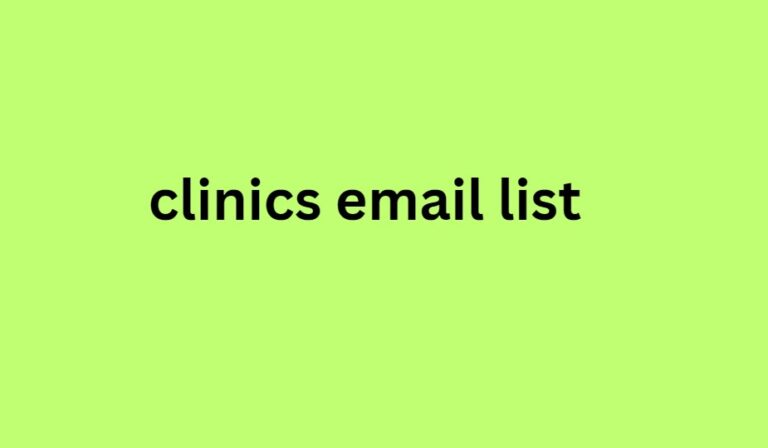What is Blockchain?
Posted: Sat Dec 21, 2024 4:42 am
Blockchain: What is it and how is it used in digital marketing?
The world of marketing is dynamic, interactive and ever-changing, and in order to adapt to new technologies, it must be able to carry out the changing approach of consumers. Now there is a new change that promises to happen in digital marketing , along with many other industries: blockchain.
In 2016, we saw ad-blocking starting to become the norm. And now, in 2018, we are seeing the rise of blockchain, even as recently as last year.
Blockchain is already making big changes in the financial world and if you are not on its radar yet, you should be. Blockchain technology will not only apply to finance; its uses are much broader than anyone can imagine.
So, if you want to get on this track or have no idea what it is and how to do it, you've come to the right place.
But first, take a look at this TED talk where a partner of one of the pioneering companies in using Blockchain in Spain explains how it will dominate commercial communications.
[Tweet “Blockchain is like a public ledger that everyone can see and share among all its users.”]
Blockchain comes from the combination of two English words: block and chain.
Blockchain is like a public ledger (or a public wallet) that everyone can see and share among all its users. It is the ultimate peer-to-peer network.
For their part, everyone using blockchain keeps the ledger (or secure account book) up to date. It is stored in a chain-like configuration, where the transaction history is stored in “blocks” and can only be built upon, not changed.
For example, if someone tries to hack, everyone would notice this hack, because the clinics email list ledger would be changed for all participants in the chain.
With the number of people already using it, that's almost impossible. Can you imagine how secure it will be when there is mass uptake of it? By having this digital wallet registered on everyone's computer, it's decentralized. Which is different from a bank, where transactions are stored privately and handled only by the bank.
Blockchain is outside of any bank or government, meaning there is no central authority setting regulations on it. So you can say goodbye to the middleman who charges a commission (i.e. banks or other financial institutions). In a report for the World Government Summit, ConsenSys gave a comprehensive rundown of the main advantages of Blockchain:

Blockchain has no center, which means everything is equal (it is decentralized).
Transactions are protected by the immutable nature of the ledger, which provides greater cybersecurity.
There is no one in charge of the blockchain as a whole.
The world of marketing is dynamic, interactive and ever-changing, and in order to adapt to new technologies, it must be able to carry out the changing approach of consumers. Now there is a new change that promises to happen in digital marketing , along with many other industries: blockchain.
In 2016, we saw ad-blocking starting to become the norm. And now, in 2018, we are seeing the rise of blockchain, even as recently as last year.
Blockchain is already making big changes in the financial world and if you are not on its radar yet, you should be. Blockchain technology will not only apply to finance; its uses are much broader than anyone can imagine.
So, if you want to get on this track or have no idea what it is and how to do it, you've come to the right place.
But first, take a look at this TED talk where a partner of one of the pioneering companies in using Blockchain in Spain explains how it will dominate commercial communications.
[Tweet “Blockchain is like a public ledger that everyone can see and share among all its users.”]
Blockchain comes from the combination of two English words: block and chain.
Blockchain is like a public ledger (or a public wallet) that everyone can see and share among all its users. It is the ultimate peer-to-peer network.
For their part, everyone using blockchain keeps the ledger (or secure account book) up to date. It is stored in a chain-like configuration, where the transaction history is stored in “blocks” and can only be built upon, not changed.
For example, if someone tries to hack, everyone would notice this hack, because the clinics email list ledger would be changed for all participants in the chain.
With the number of people already using it, that's almost impossible. Can you imagine how secure it will be when there is mass uptake of it? By having this digital wallet registered on everyone's computer, it's decentralized. Which is different from a bank, where transactions are stored privately and handled only by the bank.
Blockchain is outside of any bank or government, meaning there is no central authority setting regulations on it. So you can say goodbye to the middleman who charges a commission (i.e. banks or other financial institutions). In a report for the World Government Summit, ConsenSys gave a comprehensive rundown of the main advantages of Blockchain:

Blockchain has no center, which means everything is equal (it is decentralized).
Transactions are protected by the immutable nature of the ledger, which provides greater cybersecurity.
There is no one in charge of the blockchain as a whole.